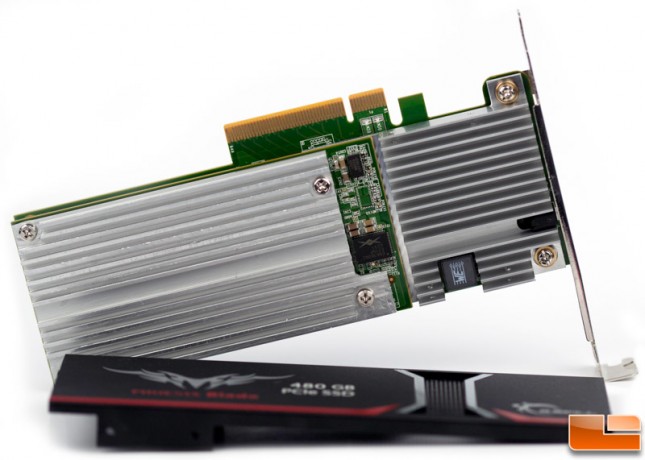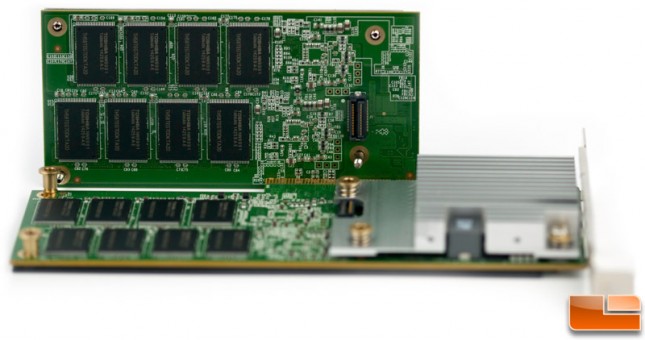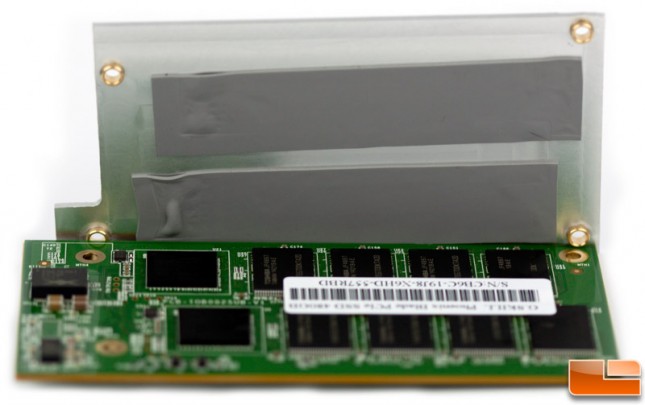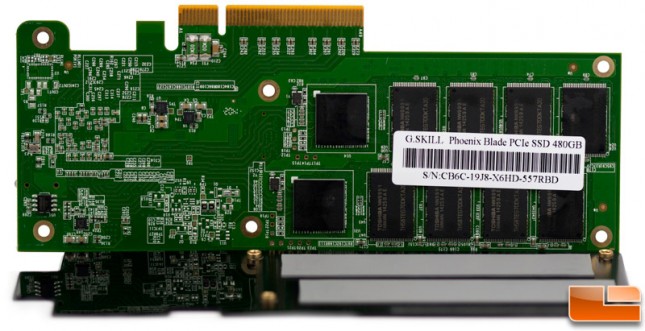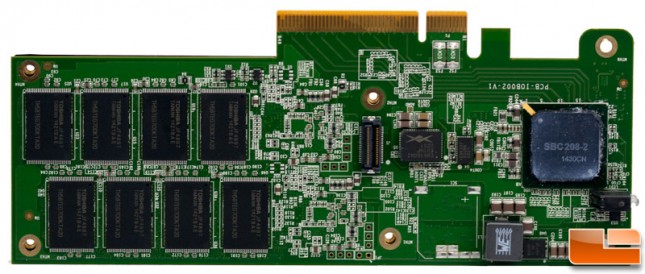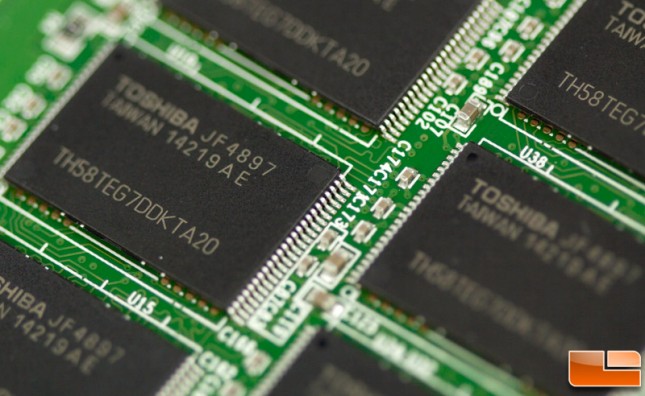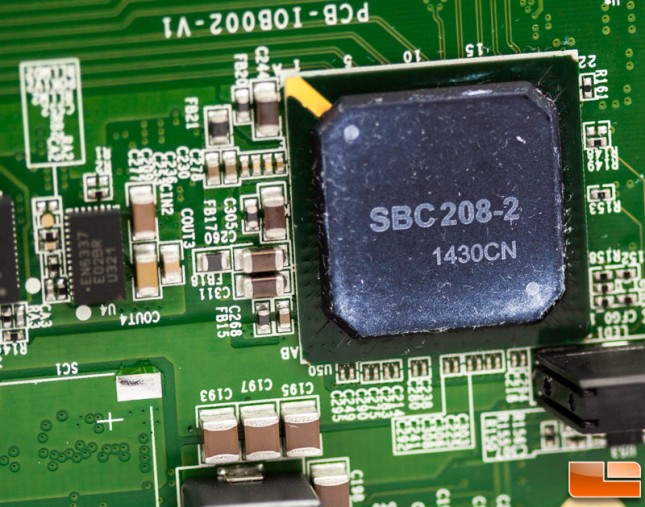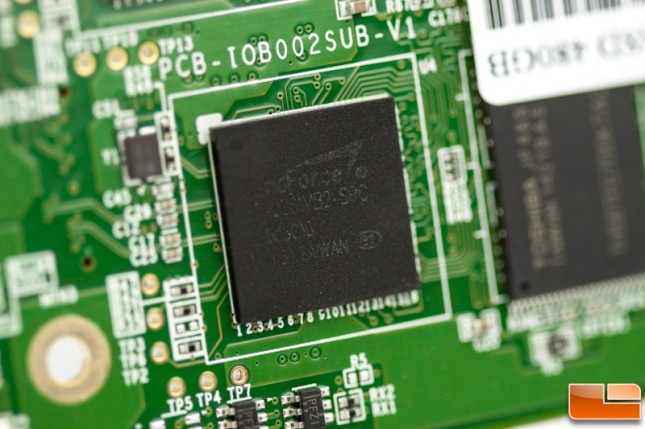G.SKILL Phoenix Blade 480GB PCIe SSD Review
A Closer Look at the G.SKILL Phoenix Blade PCIe SSD:
When we start dismantling the G.SKILL Phoenix Blade PCIe SSD, the fancy black exterior is held on by just a few screws and is really just there for aesthetics.
Once this is removed, several large heatsinks are visible. At 18W max power usage, things could get a little toasty with all of those controllers.
The are multiple layers making up the array of NAND and controller. This is how they were able to minimize the form factor and we had to be careful taking it apart to make sure we were able to put it back together again properly. Measuring only 170mm long and 70mm high, it’s a pretty compact design.
Most of the heatsinks have thermal padding for heat transfer and for physical shock absorption.
Even the black backplate acts as a heatskink with thermal pads on it as well.
The other main component found on one of the boards the RAID controller which we’ll look at closer below.
The NAND is Toshiba 19nm MLC carrying part number TH58TEG7DDKTA20. There’s a total of 512GB on board in the array of 32 NAND packages. The irony is not lost on me that OCZ is currently the biggest competitor for this drive and they are owned by Toshiba.
We can see the PCIe 2.0 x8 to SATA RAID controller labeled with part number SBC208-2 once the thermal paste was wiped away. We don’t know a ton about it other than it’s what makes the RAID setup possible and is what leverages the ScaleBoost Virtualization Technology to pass the TRIM commands.
While it’s difficult read because the ink has been leeched from the etching by the thermal pad, this is our old friend the SF-2281 LSI SandForce controller. It’s one of four found on this drive. They leverage SandForces DuraClass and RAISE technologies to handle everything from wear-leveling and data compression to error correction and drive maintenance. The data compression is what boosts performance when possible. These controllers are a few years old now – ancient by SSD standards, and we expect to see something new from LSI in the near future. They sure have gotten a lot of mileage from this design!

